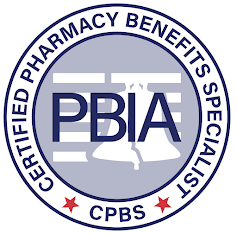How Pharmacy Benefit Managers Outsmart Regulators and other notes from around the interweb:
- The Unseen Influence: How Pharmacy Benefit Managers Outsmart Regulators. Pharmacy benefit managers wield significant power in the pharmaceutical supply chain, yet their opaque and complex business models enable them to consistently outmaneuver regulatory efforts aimed at transparency and fairness. As a result, consumers, healthcare providers, and insurers often bear the brunt of higher costs and limited access to essential medications. To address these challenges, ongoing regulatory scrutiny and innovative policy solutions are crucial to ensure that PBMs operate in a manner that truly benefits the healthcare system and its stakeholders. Despite increased scrutiny and regulatory efforts to bring transparency to PBM practices, these middlemen continue to find ways to outsmart the system. Here’s how.
- Mail-Order Drugs Were Supposed to Keep Costs Down. One employer was paying about $100 for a prescription for a generic antidepressant, though it could be bought elsewhere for about $12. A key tool that businesses have counted on to keep a lid on employees’ drug spending—filling workers’ prescriptions by mail—is now driving up their costs. Unity Care NW, a nonprofit health clinic in Washington state, forecasts the cost of medical and drug benefits for its 365 employees and their family members will increase this year by 25% to more than $3 million. A big reason: Drugs delivered by mail are costing multiples more than those picked up at a store counter. Markups were as much as 35 times higher than what other pharmacies charged, according to a recent analysis of millions of prescriptions in Washington state. The stakes nationally are huge, in a medical market with escalating prescription prices and increasing concentration of medical providers in direct employment by hospital groups.
- FTC Releases Interim Staff Report on Prescription Drug Middlemen. The Federal Trade Commission published an interim report on the prescription drug middleman industry that underscores the impact pharmacy benefit managers (PBMs) have on the accessibility and affordability of prescription drugs. The interim staff report, which is part of an ongoing inquiry launched in 2022 by the FTC, details how increasing vertical integration and concentration has enabled the six largest PBMs to manage nearly 95 percent of all prescriptions filled in the United States. This vertically integrated and concentrated market structure has allowed PBMs to profit at the expense of patients and independent pharmacists, the report details. “The FTC’s interim report lays out how dominant pharmacy benefit managers can hike the cost of drugs—including overcharging patients for cancer drugs,” said FTC Chair Lina M. Khan. “The report also details how PBMs can squeeze independent pharmacies that many Americans—especially those in rural communities—depend on for essential care. The FTC will continue to use all our tools and authorities to scrutinize dominant players across healthcare markets and ensure that Americans can access affordable healthcare.”
- The Leap to Self-Insurance. Health insurance, like any insurance, is about pooling risk and paying premiums to create some financial cushion against costly events. For years, though, many large employers — what constitutes large means varies, but it’s typically 500 or more employees — have self-insured, meaning they have taken on the responsibility of setting funds aside to pay healthcare claims instead of a health insurer. In other words, they act as their own insurer, although they often hire a health insurer as a third-party administrator (TPA) to process claims and to take advantage of that insurer’s provider networks. Under the Employee Retirement Income Security Act of 1974 (ERISA), companies that self-insure are exempt from state health insurance mandates. ERISA exemption means those large employers can offer the same benefit package to their far-flung workforces working and living in different states and very likely save money by not covering some of the state-level health insurance benefits.
